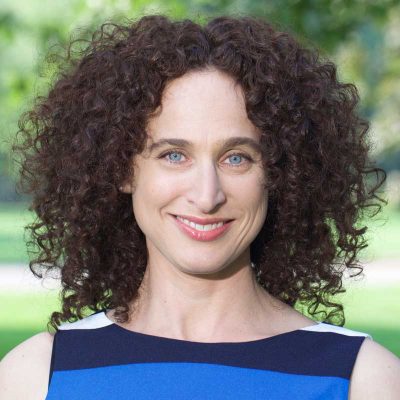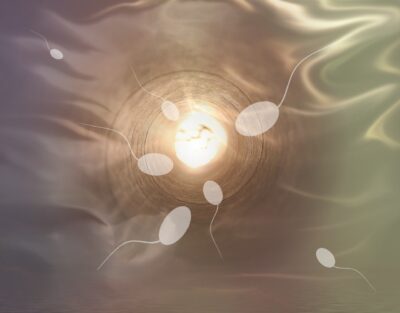
Infertility Awareness Week
The struggle with fertility can be overwhelming. We spend so much of our lives avoiding getting pregnant; when the time comes that we are finally ready, it does not always happen right away. It is a scary thought that we might not be able to conceive. After a few months or even years pass, couples invariably ask the question, “What’s wrong with me?” It can be a source of sadness and disconnection affecting intimacy and quality of life.
While it affects many couples, infertility remains a private struggle for many people. We hope articles like these will help break the silence. You are not alone. There are many people looking for answers, wanting to understand how to improve their health and create an optimal environment for conception. We are here to help support you, provide information, and work with you directly, or as an adjunct to your IUI or IVF procedures. Acupuncture performed on the day of IVF has been shown to increase rates of implantation by as much as forty-four percent and is particularly helpful for women ages thirty-five to forty. Read More
As acupuncturists, we look at fertility through a number of lenses and seek to integrate information from multiple perspectives. We treat each couple accordingly. The more information we have, the better we are able to provide a targeted treatment. For instance, we like to have baseline medical tests that can inform us of ways we can help the body become fertile. It gives us vital information and allows us to coordinate with your PCP or fertility specialist. For both parties, we also want to know how your sex life and libido are, and even how your digestion is working; the more frank, honest, and up-front you are, the more comprehensive we can be. The best course of treatment spans a few months.
For women, we look at information such as hormone levels, menstrual cycle patterns, and basal body temperatures. Basal body temperature charts can alert us to such patterns as a luteal phase defect. A luteal phase defect indicates a shortened time (usually less than ten days) between ovulation and menstruation. This can indicate an early drop in progesterone and a signal to the body to menstruate. Correcting this imbalance with acupuncture and herbs can create a longer luteal phase, helping to retain a pregnancy. Conditions such as anovulation (a lack of ovulation), can be caused by Polycystic Ovarian Syndrome (PCOS), or other reasons such as low body weight, or a lack of menstruation (amenorrhea). Acupuncture can help with ovulation, and a return to a normal cycle. In TCM, anovulation caused by PCOS is a very different presentation than amenorrhea. PCOS in TCM falls into three primary categories. The western diagnosis of PCOS is characterized by infrequent or prolonged menstrual periods, excess hair growth, acne, obesity, and higher rates of Type 2 diabetes. One way western medicine manages PCOS is with birth control pills to regulate hormones. While it can manage the symptoms, it will not help a woman conceive. Acupuncture offers great possibilities to encourage ovulation.
The goal of TCM with amenorrhea is to “build blood” which allows for a healthy environment for conception. Studies today show we need healthy fats and good protein to store sex hormones and build blood. Chinese Medicine will focus on both acupuncture and herbs to increase the quality of your blood. This is somewhat, a philosophical concept. In a blood test, blood deficiency may show as anemia, but it may not. A TCM practitioner will study the color of your tongue and ask you several questions about your menstrual cycle and overall health to determine how to bring you to optimal health. In TCM, Bone Soup has been used to nourish the blood.
For men, test results for count and quality of sperm are very useful. If you are reading this and just beginning to think about reaching out for fertility support, it may be helpful to understand the timelines involved. For instance, the sperm ejaculated today is seventy to ninety days old, so it could take two to three months to see a change in male fertility. Acupuncture can effect general sperm health, quality , and fertility.
It is also important to discuss diet and lifestyle. Women trying to get pregnant need to get enough of the right nourishment. A diet rich in healthy fats and protein will provide the body with the foundation it needs to create new life. We can offer specific guidelines and suggestions according to the Traditional Chinese Medicine (TCM) way of eating. The right amount of exercise is also essential for fertility; too much or too little can have adverse effects on physiology and can contribute to challenges conceiving.
One of the goals of Chinese medicine is to bring the body to homeostasis – middle ground. When people experience stress, either emotional or physical, the body can lose its balance. Imagine a pendulum swinging in either direction. The faster it goes, the more momentum it picks up. Our goal is to bring your body and mind to the middle, to a place of calm. Stress manifests in many ways, including hormonal changes. Acupuncture shows your body what it is like to be calm.
IVF procedures have brought acupuncture more into the mainstream. There is ample research showing both acupuncture and Chinese herbs to be helpful for fertility support. At the Acupuncture Clinic of Boulder, we stay up to date on the latest information to ensure that you’re getting the best treatments and support possible. We can work with you individually or as an adjunct to your fertility treatments. We are here to answer any questions you have.
Now open Saturdays!
Also view our website at http://www.acuboulder.com.



